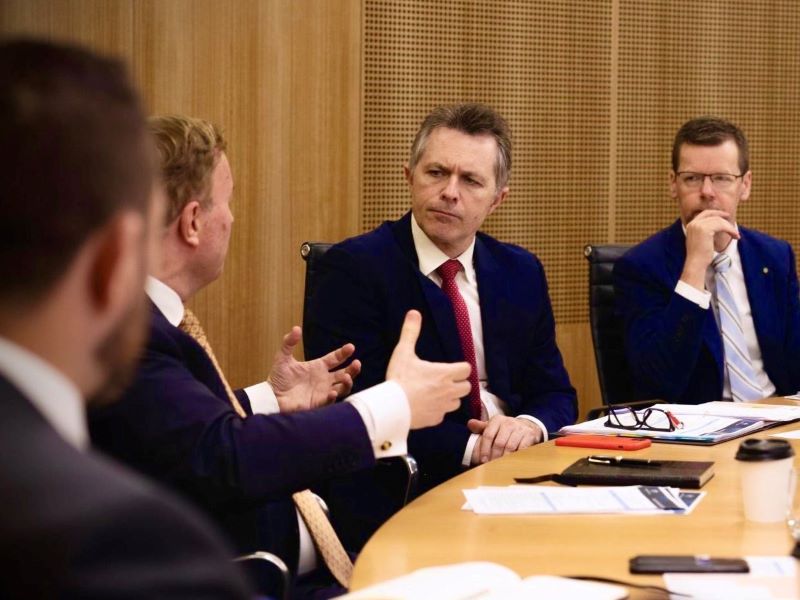A parliamentary inquiry will examine the risks and potential opportunities of generative artificial intelligence tools like ChatGPT in school and higher education settings, with Education minister Jason Clare convinced the technology is here to stay.
The Standing Committee on Employment, Education and Training opened the probe on Wednesday following a referral from Minister Clare, who on the same day touted AI as a potential time saver for overworked teachers.
It is understood to be the first time an Australian government has opened a parliamentary inquiry into AI.

The inquiry comes as education departments consider the long-term implications of generative AI tools, including OpenAI’s ChatGPT and GPT-4, Google’s Bard and Microsoft’s Frankensteinian Bing offering, which have risen to prominence in the last six months.
Public schools across the country blocked ChatGPT for students and teachers earlier this year, although some states, including Western Australia, have since lifted their bans for teachers.
Universities, however, remain largely divided on the issue, with some institutions in South Australia allowing students to use the technology for assignments if it is disclosed, while others are actively seeking out new ways to identify plagiarism.
According to the terms of reference for the inquiry, the committee will look into the current and future impacts of generative AI on Australia’s early childhood education, schools and higher education sectors.
The committee will pay specific attention to the “ways in which [AI] can be used to improve education outcomes” and the “future impact generative AI tools will have on teaching and assessment practices”.
Risk and challenges presented by the tools will also be top of mind, particularly in relation to “ongoing academic and research integrity”, as will international and domestic examples of best practice implementation.
Labor MP and committee chair Lisa Chesters on Thursday said the increasing availability of “artificial technologies” in education settings presented both opportunities and challenges for the Australia education system.
“We will have a particular focus on the emergence of generative AI technologies, and the benefits and the risks they may hold for the Australian education system, now and into the future,” she said in a statement.
Earlier on Wednesday, Minister Clare told the AI in Education Conference that AI is “not going away”, likening the technology to how the internet would have been viewed in the past, and that the task before policymakers was about how tools like ChatGPT are used.
“We’re entering an age where AI has got to be part of the education. With its ability to analyse data, recognise patterns, and make predictions, AI can help us to personalise education, and make it more engaging and more effective for individual students,” he said.
“AI could also assist teachers by automating routine tasks such as grading, allowing them to focus on the more critical task of teaching and mentoring their students. The reason you all got into teaching in the first place.
“Much like the internet and the calculator before it, AI has the potential to completely change how we teach and how we learn. The challenge for teachers and policymakers is how do we harness the real and palpable benefits of AI and also make sure it’s not misused.”
Minister Clare, along with state and territory education ministers, requested that an “evidence-based, best practice framework to guide schools in harnessing AI tools to support teaching and learning” be drafted following a February meeting.
A taskforce of experts is currently developing a draft version of the framework, which is expected to be ready for consideration at the next meeting of federal, state and territory education ministers in a few weeks.
Do you know more? Contact James Riley via Email.

